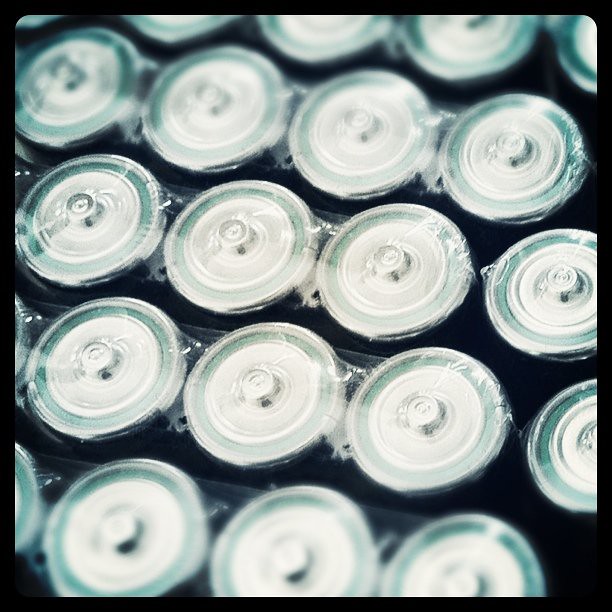What to do if a lithium-ion battery explodes?
Jul 30, 2019 Pageview:1763
Introduction
Lithium-ion is a great technology in the battery world. Lithium-ion batteries are used in a wide variety of applications. This technology has proved to be very useful, one fact is that there is an increasing demand for Li-Ion batteries. We can expect more and more improvements in these batteries. While lithium-ions are considered incredibly safe, they are associated with occasional fire or explosion. We have actually seen big brands like Samsung and HP recall their gadgets due to battery explosions or catching fire. When something like that happens it is always big news. But do why you know why lithium-ion batteries explode or catch fire? And should you do if a lithium-ion battery explodes?
What causes a lithium-ion battery to explode?
Lithium-ion batteries are powerful batteries, and the very thing that makes them so useful is also what gives the ability to catch fire or explode. When Li-Ion batteries release energy as a trickle, it powers your electronic, but when it is released all in one go, the battery can catch fire or explode.
Short-circuiting is the main cause of most lithium-ion battery fires and explosions. It occurs when the plastic separator fails leading to contact between the anode and the cathode. If the anode and the cathode touch, overheating results.
Fire results when the battery enters thermal runaway develops internal current and becomes so hot that it vaporizes the electrolyte, leading to internal pressure which causes an explosion. The combination of the electrolyte, high temperature and atmospheric oxygen causes an intense fire. When the lithium and atmospheric water vapour react to form lithium hydroxide and hydrogen gas, we have explosions or big bangs.
In the event of failure conditions, lithium ions and lithium metal cells usually undergo a process known as thermal runaway. The runaway is what leads to a rapid increase in battery temperature and pressure, reactions of the lithium and atmospheric water vapour which leads to a release of flammable gas. The flammable gases can then be ignited by the battery’s high temperature, resulting in a fire.
Additionally, a small short-circuit can actually cause an increased self-discharge rate and even generate some heat. However, a huge short-circuit can develop a sizeable current with flow between the positive and negative plates causing combustion.
Reasons for the failure of the separator:
· Manufacturing defects: poor battery design can increase the risk of the battery catching the fire or explosion. Poor design can be in the form of lack of enough space for the electrodes and separator in the battery. If there is a lack of enough space, if the battery expands just a little bit, the electrodes may touch and cause a short circuit. Also, a battery may be well designed but still be at risk of separator failure if quality control is not strictly followed or if there is some manufacturing defect.
· Problems of the charger: if a charger is poorly made or poorly insulated it can cause damage to the lithium-ion battery. The poorly made charger can generate heat when charging the battery, thus leading to damage to the battery or even failure. Therefore, it is always recommended to use only original or official chargers. Overcharging can lead to overheating of the battery. However, overcharging is rare because batteries have built-in protections to prevent overcharging. But if safety precautions fail, overcharging can happen.
· External factors: placing your batteries near extreme heats can cause fire or explosion. Extreme heats will definitely cause battery separator failure. In most cases, batteries left too close to a heat source are known to explode. Also, if you drop your battery too hard, there’s a chance of damage to the separator thus leading to electrodes touching. Piercing your lithium-ion battery will almost certainly cause a short circuit.
· Thermal Runaway: thermal runaway is mostly associated with batteries that have multiple cells. If one cell fails, the whole battery fails too. Overheating of the cell leads to an effect known as thermal runaway. This effect has the potential to be a dangerous problem.
What to do if a lithium-ion battery explodes?
If you notice that your battery is overheating, hissing or bulging, you should move the device away from flammable materials and place it outdoors or on a non-combustible surface.
A small lithium-ion fire should be handled like any other fire. You should use a foam extinguisher, CO2, ABC dry chemical or soda to put it out.
Since lithium-ion batteries contain a small amount of lithium metal, in case of fire, you can use water to put it out. Research laboratories and factories use water to put out lithium-ion battery fires.
If there is a large Li-Ion battery fire, you may need to let it burn out in a controlled and safe way. However, water with copper material can be used to extinguish the fire, but it may not be available and is very expensive for firewalls.
When you have lithium metal battery fire, once use Class D fire extinguisher. Lithium metal battery contains a large amount of lithium in volume which reacts with water and can make the fire even worse.
In the case of thermal runaway, the heat of the failing cell inside the battery pack may move to the next cells, causing them to become thermally unstable too. This leads to a chain reaction where each disintegrates on its own timetable. Therefore, can be destroyed in a few seconds or over several hours as each cell disintegrates. Therefore, the seemingly burned out pack should be left outside for a while.
A lot of research is going on to determine the ways to make lithium-ion batteries completely safe. Lithium-ion batteries have actually become very safe and any heat-related failures are very rare when the batteries are used correctly.
How to avoid a lithium-ion battery explosion?
Lithium-ion batteries are usually very safe, but if you used improperly then there is some degree of risk of fire or explosion. Here is how to avoid a lithium-ion battery explosion.
· Only use the official charger: you should use the charger that came with your device, however, if you lose it, get a replacement that is recommended by the manufacturer. Using the wrong charger has always been the main cause of explosions for many devices.
· Keep your device away from extreme heat and extreme cold: when you leave you to leave your devices in extreme heat or cold, lithium-ion batteries commonly reach dangerous temperatures which can lead to damage of the battery.
· Do not modify your electronics: modifying your electronics is dangerous and greatly increases the risk of a lithium-ion battery explosion.
· Transport your lithium-ion battery in a specifically designed container: when transporting your battery make sure it is away from metal and other batteries. Lithium-ion batteries can explode or when kept in a handbag or pocket as they come into contact with coins or keys.
· Do not pierce your lithium-ion battery: piercing your lithium-ion battery can damage the separator and even cause lithium to react to both water and oxygen. The reaction can be rapid and cause an explosion.
Conclusion
You need to understand lithium-ion batteries used to power to your devices have the capacity to catch fire or explode when used incorrectly or exposed to extreme conditions. Lithium-ion batteries are safe technology. Manufacturers are putting a lot of safety measures in place to prevent battery failure.
- Prev Article: What do you think about lithium-ion battery components?
- Next Article: You Should Know More About Best 18650 Rechargeable Battery
Leave Message
Hottest Categories
-
Hottest Industry News
-
Latest Industry News











